
[ad_1]

Leslie Jamison’s Splinters, Sloane Crosley’s Grief is For People, and Lucy Sante’s I Heard Her Call My Name all feature among this month’s best reviewed nonfiction titles.
Brought to you by Book Marks, Lit Hub’s home for book reviews.
*
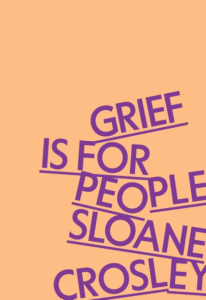
1. Grief is for People by Sloane Crosley
(MCD)
11 Rave • 1 Positive
“If Crosley’s descriptions of love for Russell are often dazzling and unexpected, her meditations on grief are occasionally clichéd. But bromides are par for the course when it comes to bereavement, and this, too, is part of the indignity of loss … Grief may follow a familiar path in every instance, but Russell himself was fiercely original, and Crosley paints a vivid and moving portrait of a singularity … Not a philosophical meditation on grief but an honest account of its cruelties and contradictions. It contains no lessons, no morals and no solutions. It is not didactic. It is as messy, rollicking and chaotic as life isnot a philosophical meditation on grief but an honest account of its cruelties and contradictions. It contains no lessons, no morals and no solutions. It is not didactic. It is as messy, rollicking and chaotic as life is … Crosley holds Russell in her heart with humor and humanity, and although she emphasizes that writing is not a consolation or an act of therapy, it is nonetheless a testament.”
–Becca Rothfeld (The Washington Post)
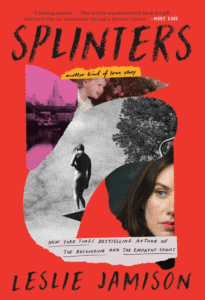
2. Splinters by Leslie Jamison
(Little Brown and Company)
7 Rave • 5 Positive • 2 Mixed
Listen to an interview with Leslie Jamison here
“This one is slimmer, less digressive, more focused on Jamison’s singular experience [than The Recovering]. But it, like its predecessor, makes a particular life ramify more broadly in intriguing and poignant ways … About the bewildering nature of new motherhood, the implosion of Jamison’s marriage, parenting solo, dating as a single mother, coping with illness and lockdown. But it is also about storytelling … Though this well of grief and guilt is not dramatized, it is not unglimpsed. Jamison writes around the hole in her story, and we can feel the gravity of its pull in her presentation of herself … Her ferocious honesty, her stringent refusal to sugarcoat, her insistence on inhabiting and depicting moments in all their evanescence and incandescence make her one of the most compelling and trustworthy memoirists we have.”
–Priscilla Gilman (The Boston Globe)
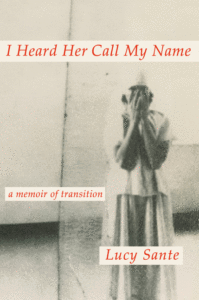
3. I Heard Her Call My Name by Lucy Sante
(Penguin Press)
7 Rave • 2 Positive
Read an excerpt from I Heard Her Call My Name, here
“Her memoir is moving for many reasons, but primarily for its observations about aging and vanity, as seen through the separated colors of a prismatic lens … Vividly written … One of the things that make this memoir convincing is that it is, on a certain level, unconvincing. Sante is a writer with a lot of peripheral vision … It’s a story worth following, to watch her ring the bells that will still ring. Her sharpness and sanity, moodiness and skepticism are the appeal.”
–Dwight Garner (The New York Times)
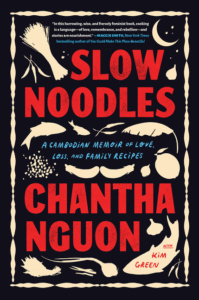
4. Slow Noodles: A Cambodian Memoir of Love, Loss, and Family Recipes by Chantha Nguon with Kim Green
(Algonquin)
5 Rave • 4 Positive
“Brutal though ultimately hopeful … The book is not only an impactful memoir of an extraordinary woman but a human-centered take on an era that has largely been defined by a lack of humanity.”
–Soleil Ho (The San Francisco Chronicle)
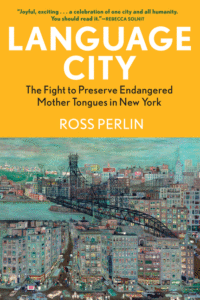
5. Language City: The Fight to Preserve Endangered Mother Tongues in New York by Ross Perlin
(Atlantic Monthly Press)
4 Rave • 4 Positive
“Panoramic, enthralling … Perlin’s discussion of indigenous languages is stellar … Perlin also weaves in his own story; his grandfather, who died in 1997, was the last Yiddish speaker in his own extended lineages. He probes the poignancy and complexity of his own feelings, lending a candor and tenderness to his account.”
–Hamilton Cain (On the Seawall)
[ad_2]
Source link